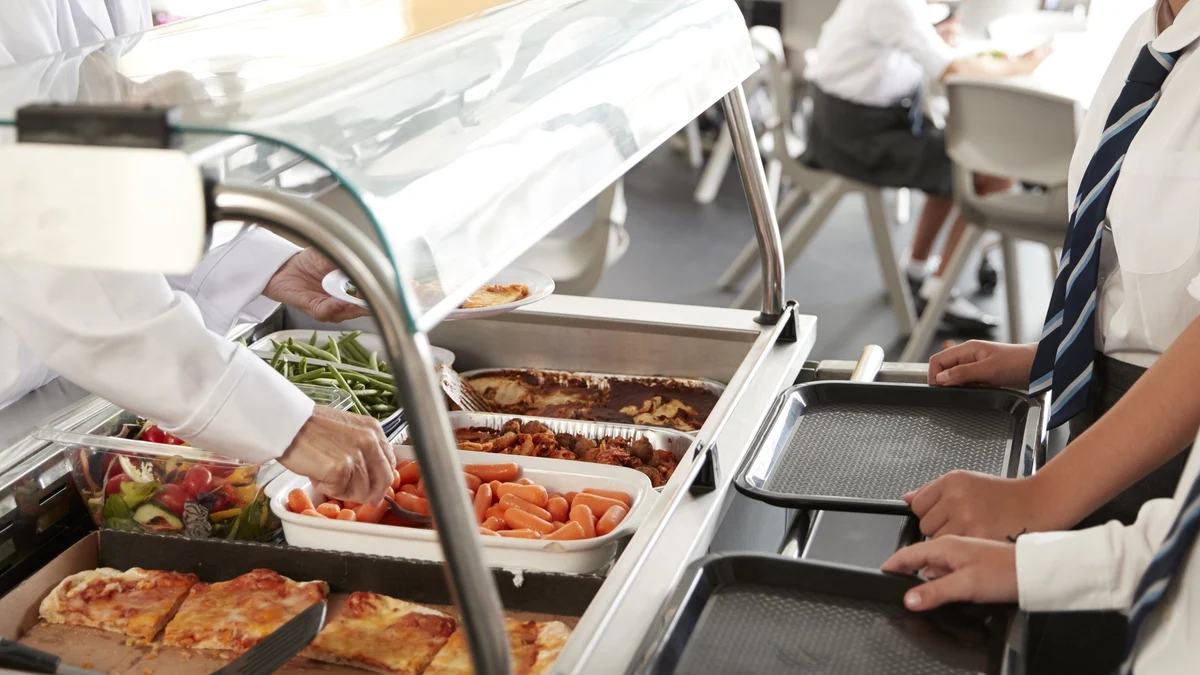Introduction: Revolutionizing School Lunches
In an era where fast food and processed meals have become the norm, there is a growing movement to revolutionize school lunches and prioritize the health and well-being of students. One chef who has taken up this challenge is the renowned Yotam Ottolenghi, a culinary visionary known for his emphasis on Middle Eastern and Mediterranean flavors. With his farm-to-table approach, Ottolenghi aims to transform school lunches, bidding farewell to the days of chicken nuggets and embracing fresh, nutritious meals that nourish both the body and mind.
The Farm-to-Table Movement: A Paradigm Shift in School Lunches
The farm-to-table movement has gained momentum in recent years, emphasizing the use of locally sourced, seasonal ingredients in cooking. This approach not only supports local farmers and suppliers but also ensures that meals are prepared with the freshest and most nutritious ingredients available. By adopting this approach in school lunches, we can provide students with meals that are not only delicious but also packed with essential nutrients.
Meet Yotam Ottolenghi: A Culinary Visionary
Yotam Ottolenghi is a chef, restaurateur, and cookbook author who has made a name for himself by showcasing the vibrant flavors of Middle Eastern and Mediterranean cuisine. His innovative recipes and emphasis on fresh ingredients have earned him a loyal following worldwide. Ottolenghi’s expertise and passion for wholesome cooking make him the perfect advocate for transforming school lunches.

The Benefits of Farm-to-Table School Lunches
Implementing a farm-to-table approach in school lunches offers numerous benefits for students. Firstly, the use of fresh, locally sourced ingredients ensures that meals are packed with essential nutrients, supporting students’ overall health and well-being. Studies have shown that a balanced diet can improve concentration, cognitive function, and academic performance.
Furthermore, farm-to-table school lunches promote environmental sustainability. By sourcing ingredients locally, we reduce the carbon footprint associated with transporting food over long distances. Additionally, supporting local farmers and suppliers strengthens the community and fosters a sense of connection between students and the food they consume.
Overcoming Challenges: Implementing the Farm-to-Table Approach
While the farm-to-table approach holds immense potential, implementing it in school lunch programs does come with its challenges. One of the main obstacles is the need for infrastructure and resources to support the sourcing and preparation of fresh ingredients. Schools must establish relationships with local farmers and suppliers, invest in kitchen facilities, and train staff to handle fresh produce effectively.
However, with proper planning and collaboration, these challenges can be overcome. Many schools have successfully implemented farm-to-table programs, serving as inspiring examples for others to follow.
Inspiring Change: Success Stories from Schools
Across the country, schools have embraced the farm-to-table approach and witnessed remarkable transformations in their lunch programs. For instance, the Edible Schoolyard Project in Berkeley, California, has integrated gardening and cooking classes into the curriculum, allowing students to grow their own produce and prepare meals from scratch. This hands-on approach not only teaches students about healthy eating but also instills a sense of pride and accomplishment.
Similarly, the Food for Thought program in New York City partners with local farmers and suppliers to provide fresh, nutritious meals to students. By involving the community in the process, students gain a deeper understanding of where their food comes from and develop a lifelong appreciation for healthy eating habits.
Practical Tips for Parents and Educators
Parents and educators play a crucial role in promoting healthy eating habits and supporting the farm-to-table movement in schools. Here are some practical tips to get started:
1. Advocate for change: Engage with school administrators, policymakers, and parent-teacher associations to raise awareness about the benefits of farm-to-table school lunches.
2. Support local farmers: Encourage schools to establish partnerships with local farmers and suppliers to ensure a steady supply of fresh ingredients.
3. Integrate food education: Incorporate gardening, cooking classes, and nutrition education into the curriculum to empower students with the knowledge and skills to make healthy food choices.
4. Involve the community: Organize farm visits, cooking demonstrations, and community events to foster a sense of connection between students, food, and the local community.
Table: Comparative Overview of Traditional vs. Farm-to-Table School Lunches
| Features | Traditional School Lunches | Farm-to-Table School Lunches |
|---|---|---|
| Ingredient Quality | Processed and pre-packaged | Fresh and locally sourced |
| Nutritional Value | Limited variety and nutrients | Balanced and diverse |
| Environmental Impact | High carbon footprint | Reduced carbon footprint |
| Student Engagement | Limited interest and connection | Increased interest and awareness |
| Community Collaboration | Minimal involvement | Strong collaboratio |
Table: Key Points of Farm-to-Table School Lunches
| Key Points | Description |
|---|---|
| Fresh, Local Ingredients | Nutritious meals prepared with locally sourced produce and ingredients |
| Health and Well-being | Improved student health, concentration, and overall well-being |
| Environmental Sustainability | Reduced carbon footprint and support for local farmers and suppliers |
| Educational Opportunities | Learning experiences through gardening, cooking classes, and food education |
| Community Engagement | Collaboration with local farmers, businesses, a |
Conclusion: Nurturing Health and Well-being, One Meal at a Time
The transition from processed meals to farm-to-table school lunches is a significant step towards nurturing the health and well-being of students. With the guidance of culinary visionary Yotam Ottolenghi and the support of parents, educators, and communities, we can create a future where fresh, nutritious meals are the norm in schools. By embracing the farm-to-table approach, we not only provide students with the fuel they need to thrive but also instill lifelong healthy eating habits and a deep appreciation for the environment. Let us bid farewell to nuggets and welcome a new era of nourishment and well-being in our school lunchrooms.




